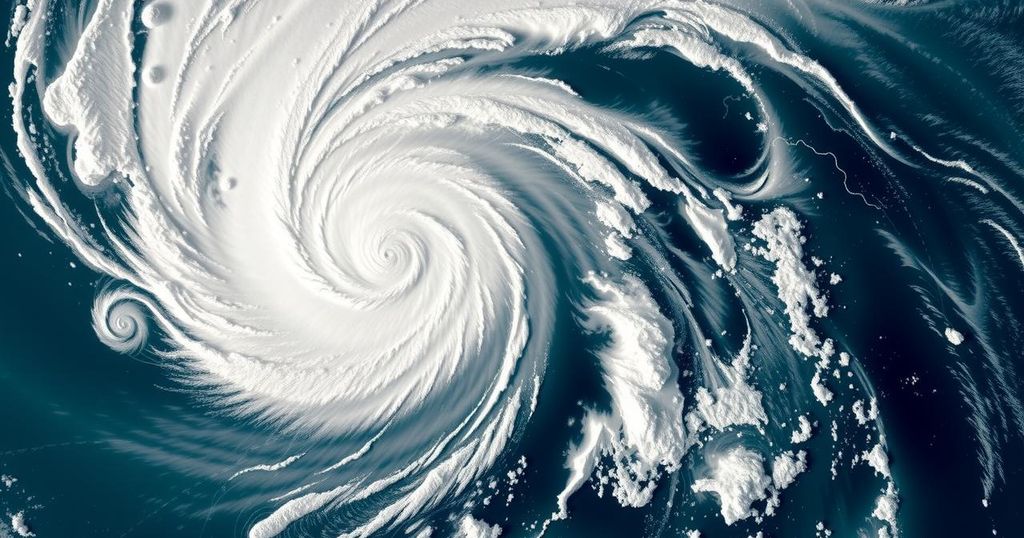Cyclone Chido Causes Severe Damage in Mayotte, Threatens Eastern Africa

Cyclone Chido has severely impacted Mayotte, causing extensive damage without reported casualties. The cyclone is set to affect Eastern Africa, particularly Mozambique, prompting emergency preparations in the region. The rising severity of cyclones in recent years raises concerns about humanitarian crises exacerbated by climate change.
Tropical Cyclone Chido has inflicted severe damage on Mayotte, a French territory located in the Indian Ocean, as it approaches the eastern coast of Africa. The cyclone’s winds, exceeding 220 kilometers per hour, resulted in extensive destruction, including roofs torn off buildings and widespread power outages. While no casualties have been reported thus far, Mayotte Prefect Francois-Xavier Bieuville described this event as the most destructive cyclone the region has faced since 1934.
In a recent statement, Bieuville indicated that while the highest alert has been lifted to assist rescue operations, the general population still remains under a red alert, urging citizens to seek shelter. French Interior Minister Bruno Retailleau acknowledged the extensive damages, stating that local and state emergency services are fully mobilized and additional rescuers are being deployed from mainland France and Reunion.
The impact of Cyclone Chido is also being felt in the Comoros, where the highest alert has been implemented in some areas. Authorities are particularly concerned about a group of fishermen who have been unaccounted for since last Monday. Due to the cyclone, Comoros has ordered all ships to remain in harbors, closed its main airport, and suspended governmental operations.
Forecasters predict that Cyclone Chido will continue its trajectory towards Mozambique, potentially affecting 2.5 million individuals in the northern provinces of Cabo Delgado and Nampula. In anticipation of flooding, Malawi and Zimbabwe are preparing for potential evacuations. The cyclone season, spanning from December to March, has witnessed a concerning trend of increasingly severe storms attributed to climate change, posing significant humanitarian challenges for affected regions.
Cyclone Chido exemplifies the escalating severity of tropical storms in the southeastern Indian Ocean, with this particular season running from December through March. Historically, the region has been struck by several devastating cyclones, including Cyclone Idai in 2019, which claimed over 1,300 lives across Mozambique, Malawi, and Zimbabwe, and Cyclone Freddy, which resulted in more than 1,000 fatalities last year. These events underscore a pattern of humanitarian crises exacerbated by climate change, where poor countries disproportionately bear the repercussions despite contributing minimal emissions. The cyclones pose significant risks including flooding, landslides, and outbreaks of waterborne diseases such as cholera.
Cyclone Chido has caused significant destruction in Mayotte as it continues toward the African mainland, particularly Mozambique. The challenges posed by Chido highlight the increasing frequency and intensity of cyclones in the region, leaving local populations vulnerable to both immediate and long-term humanitarian crises. As communities brace for further impacts, the need for effective emergency responses and long-term strategies to address the underlying effects of climate change becomes ever more crucial.
Original Source: www.voanews.com







